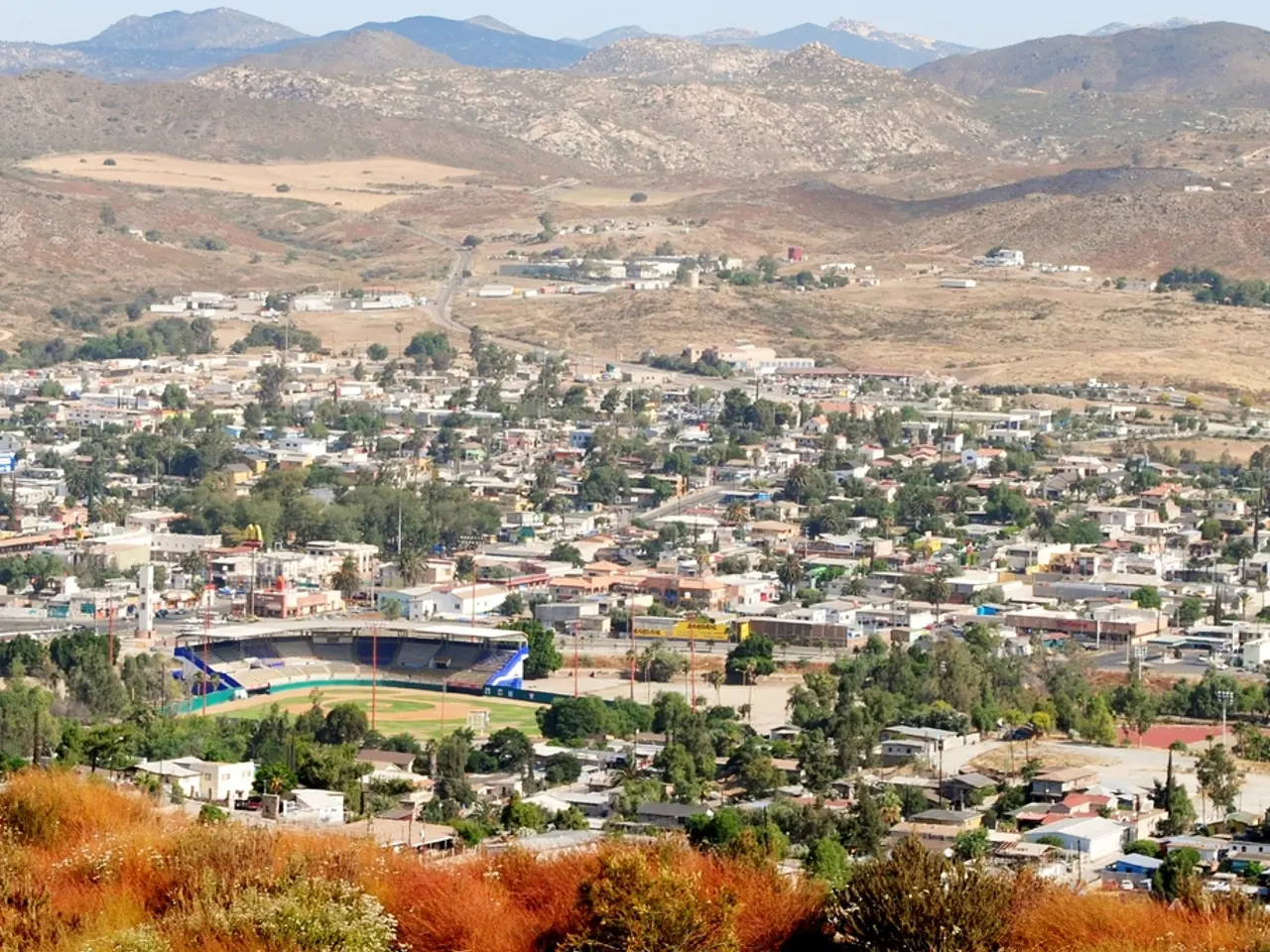Norway holds a close vote in an election, with war and tariff issues taking center stage
Norway Heads to the Polls: A Pivotal Election Amidst Domestic and Geopolitical Uncertainties
Norway is set to elect a new government on September 13, with the election campaign focusing heavily on domestic issues such as cost of living, healthcare, inequality, education, and the possibility of abolishing a wealth tax.
The incumbent prime minister, Jonas Gahr Støre of the Labour Party, is battling Sylvi Listhaug to be the prime minister if the right-wing bloc secures a majority. Støre's government is a single-party minority, and to secure a majority in the Norwegian Parliament, the left-wing bloc must unite.
The left-wing bloc consists of the Labour Party (Arbeiderpartiet, Ap), the Red Party (Rød), the Green Party (MDG), the Centre Party (SP), and the Socialist Left Party (SV), together holding 87 seats. On the other hand, the right-wing bloc includes the Progress Party (FrP), Conservatives (Høyre), Liberal Party (INP), and Christian Democrats (KRF) with 82 seats.
However, inner-party differences arise mainly within the left bloc, especially regarding Norway's oil and gas policies. While some left parties push to end fossil fuel exploitation, the Labour Party under Støre supports continued extraction, complicating cooperation and budgeting decisions.
The right-wing bloc is divided, with the Progress Party overtaking Solberg's Conservatives in opinion polls. The left-wing bloc is also divided on issues such as oil drilling and EU membership. The far left wants the country's sovereign wealth fund to divest from Israel, a position opposed by Labour.
Political scientist Johannes Bergh suggests that Store's long experience in global affairs could be an advantage. Knut Aga, a 78-year-old entrepreneur, is looking for political stability, with Europe and the US perceived to be in uncertain states. Geopolitical uncertainties could influence voters to support the stability of a sitting government.
A record 1.9 million Norwegians, over 47 percent of the electorate, voted in advance. Voting stations opened at 0700 GMT and the first projected results are expected after the final polling stations close at 1900 GMT.
Norway shares a border with Russia in the Arctic, adding a layer of geopolitical complexity to the election. The outcome of the election could have significant implications for Norway's foreign policy and its relationship with its neighbours.
Former NATO chief Jens Stoltenberg's return to government has boosted the prime minister domestically, but the election results could determine whether he stays in power. The election promises to be a close contest, with the outcome likely to shape the future of Norway for years to come.
Read also:
- Tobacco industry's suggested changes on a legislative modification are disregarded by health journalists
- Trump's Policies: Tariffs, AI, Surveillance, and Possible Martial Law
- Uncovering Political Ad Transparency: A Guide to Investigating opponent's Political Advertisements in the Digital Realm
- Elon Musk praises JD Vance's debate performance against Tim Walz








